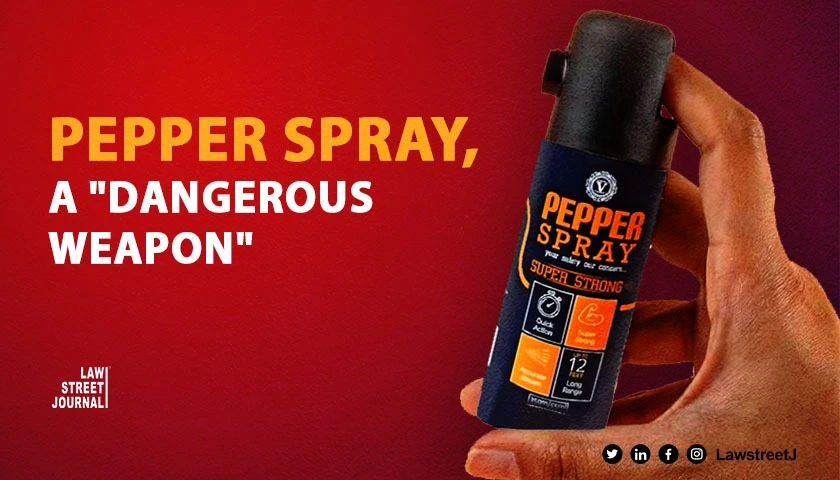KARNATAKA: The Karnataka High Court has recently declined to dismiss a criminal case against the accused persons for using pepper spray on a complainant, holding that noxious chemical sprays like pepper sprays are dangerous weapons.
The court held that prima facie there was no imminent threat or danger caused hence pepper spray should not have been used as a means of private defence. Since there exists no determination with regard to the usage of pepper spray being dangerous weapon in India, the court referred to the case of PEOPLE v. SANDEL wherein a U.S. court has held that noxious chemical sprays, like pepper sprays are dangerous weapons.
FACTS
A lawsuit was been filed to prevent the petitioner from making any alterations or additions to the building that would impede the free movement of people and vehicles.
Further after the court's order, an interim injunction was granted against all parties involved. Following the interim order, complainant made an effort to build a wall to close off the entrance of the individuals involved in the case. Afterward, a disagreement arose between the two parties which resulted in a confrontation that escalated into both verbal and physical altercations, with the use of pepper spray.
Following this, an FIR was registered under sections 323, 324,341, 427, 504, 506, and 34 of the IPC.
ARGUMENTS
The counsel representing the petitioners contended that the petitioners were forced to use pepper spray in their defence and that is protected under Section 100 of the IPC.
Further, the counsel relied on the law laid down by the Apex court in the case of STATE OF HARYANA v. BHAJAN LAL argued that if the complaint is registered on mala fides, it must not be permitted to be investigated.
However, the counsel for the complainants argued the right to private defence had been misused in the present case, as there was no threat or danger to the life of the petitioners, but pepper spray was used only to cause injury to the complainant. He also argued that pepper spray is a dangerous weapon that would come within the ingredients of Section 324 of the IPC.



![Karnataka High Court: Cabinet Rank Status Not Equivalent to Ministerial Position [Read Order]](/secure/uploads/2023/09/lj_2318_fc1b99b7-aeed-472b-836e-33750bedb394.jpg)


![Woman living in adultery cannot claim maintenance: Karnataka High Court [Read Order]](/secure/uploads/2023/10/lj_3083_Women_living.jpg)






